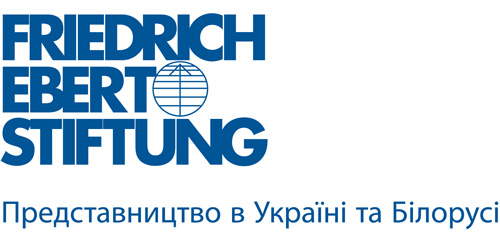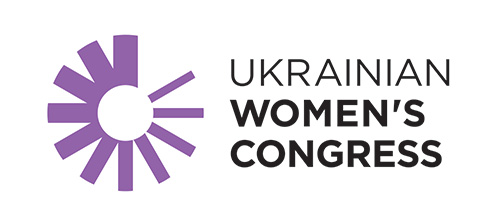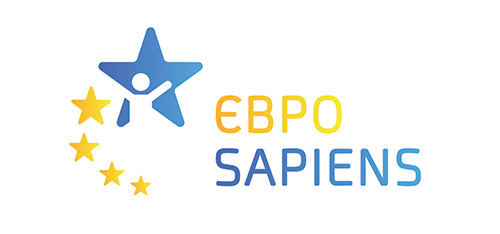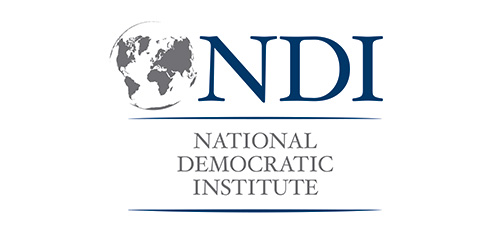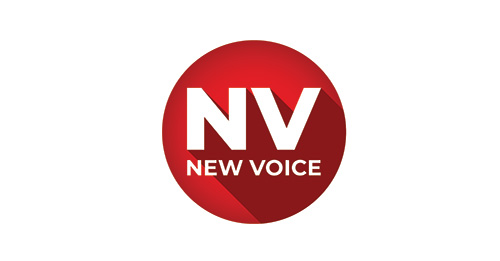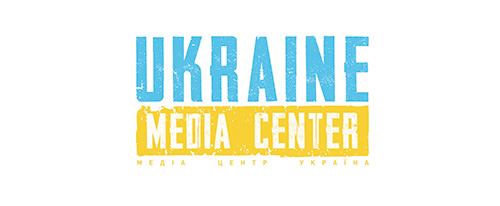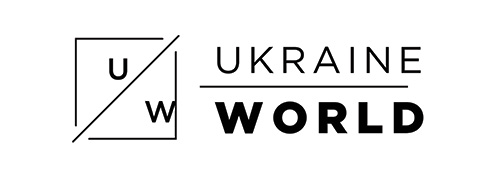Christopher WALKER: THE ARAB UPRISINGS AND THE INHERENT VULNERABILITY OF AUTHORITARIAN REGIMES
Authoritarian systems do not ensure stability. Instead, they steadily erode the independent institutions and safeguards that guarantee basic justice; ensure government integrity, and responsiveness; and provide for regular, peaceful transfers of power. If the uprisings of the Arab Spring have taught us nothing else, it is that authoritarians that seek to prolong their stays after the point their citizens signal a desire for change, more instability is sure to follow. This reality has significant implications both for the Middle East, as well as Eurasia.
THE ARAB UPRISINGS AND THE INHERENT VULNERABILITY OF AUTHORITARIAN REGIMES
MAIN POINTS:
- Authoritarian systems do not ensure stability. Instead, they steadily erode the independent institutions and safeguards that guarantee basic justice; ensure government integrity, and responsiveness; and provide for regular, peaceful transfers of power. If the uprisings of the Arab Spring have taught us nothing else, it is that authoritarians that seek to prolong their stays after the point their citizens signal a desire for change, more instability is sure to follow. This reality has significant implications both for the Middle East, as well as Eurasia.
- While the changes in North Africa and the Middle East are significant, they should not be mistaken for imminent arrival of institutionalized democracy. Instead, the coming period should be seen as one in which authoritarian – or post-authoritarian – systems enter a new phase of their development from which democracy is not assured.
- It is becoming clearer that the authoritarian regimes of Eurasia, which suppress legitimate opposition, obstruct the development of civil society, and otherwise monopolize political and economic life, are vulnerable to some of the same forces currently shaking the Middle East and North Africa. Policymakers in Europe and the United States should acknowledge these developments and devise policies that can effectively support democratic accountability there.
- To ensure stability and prosperity over the long term in this region and around the world, supporters of democracy must counter authoritarian efforts to prevent change, encourage efforts to build democratic institutions, and maintain vigilance in countries where recent accomplishments are still vulnerable, including such countries Hungary, Georgia and Ukraine.
BACKGROUND AND CONTEXT
Since the end of the Cold war, the world has experienced a demonstrable improvement in the number of democratic states. Since 1990, the number of countries categorized by Freedom House as Free increased from 65 to 87. These improvements broadly signify the growth in the number of countries whose systems abide by norms of political accountability, transparency and free expression, among other such values.
Today, Freedom in the World, Freedom House’s annual global analysis of political rights and civil liberties, categorizes 87 countries (45 percent of the global total) as Free; the number of countries qualifying as Partly Free stands at 60 (31 percent); and 48 countries (24 percent) are designated as Not Free.
The last two decades saw democratic progress in a number of regions and subregions, including Central Europe and the Baltic states, whose democratic evolution has been an integral part of these countries’ contributions to regional and global security.
The overall improvement globally during this period excluded the Middle East and North Africa, however, which remained effectively immune to reform. By 2010, the percentage of Not Free countries – those routinely denying basic rights and their safeguards and guarantees – in this region stood at 78 percent. The countries in this region receiving much attention today suffered under politically unaccountable systems that over time became less responsive to ordinary citizens’ needs. Corruption became more deeply entrenched. The region’s long period of political stagnation made the abruptness of Arab uprisings at the end of 2010 and 2011 all the more jarring. They should not have been wholly unexpected, however.
INSTABILITY AS BYPRODUCT OF AUTHORITARIAN GOVERNANCE
While it is impossible to predict the breakdown of such political systems, it should be noted that systematically corrupt and repressive countries are more susceptible to instability than their better governed counterparts. This susceptibility creates inherent unpredictability.
The world’s least democratic countries offer a graphic example of the challenge, both within and beyond their borders. As part of its global analysis, Freedom House each year identifies the world’s worst performing regimes – the Worst of the Worst – states which are the most repressive, and least accountable and transparent. As of last year, these included: Burma, Equatorial Guinea, Eritrea, Libya, North Korea, Somalia, Sudan, Turkmenistan, and Uzbekistan, as well as Belarus, Chad, China, Cote d’Ivoire, Cuba, Laos, Saudi Arabia, and Syria.
Of the countries recently cited among the least democratic, several are noteworthy. Burma has opened the door to a reform process that is being greeted with cautious optimism. Libya has removed Mu’ammar al-Qadhafi after four decades of tyranny and the country now confronts the enormous but necessary task of creating a new, more accountable system. Virtually all of the remaining examples of the worst performers tend to detract from rather than contribute to a sounder security environment.
The authoritarian regime in Syria is a case in point. Britain’s ambassador to Syria, Simon Collins, recently wrote that Syrian regime is using repression on an “industrial scale.” The government’s uncompromising brutality at home is increasingly having a greater impact abroad, generating tens of thousands of refugees, burdening neighboring states and contributing to a wider and growing humanitarian disaster.
THE AUTHORITARIAN CONUNDRUM
The recent experience of the countries of North Africa and the Middle East reflect inherent vulnerabilities of authoritarian systems that by their nature contribute to instability. The key governance-related features of these systems include:
- Succession Problems: Consolidated authoritarian systems typically have no mechanism to enable a peaceful rotation of power, even if they hold managed elections in order to maintain a degree of legitimacy. In the Middle East and North Africa, the recently removed despots in Tunisia, Egypt and Libya were in power, respectively, for 23, 30 and 42 years. In the Eurasian context, leaders in countries as diverse as Azerbaijan, Belarus, Tajikistan and Uzbekistan are remaining in power with no rotation among rival political forces on the horizon. Russia is following a similar pattern. The choreographed succession between Vladimir Putin and Dmitri Medvedev and the elections in March 2012 that sanctified this decision fit this mold. Succession concerns in Kazakhstan, another country often viewed as stable, are creating their own questions and tensions. The regime in Astana seems determined to postpone the succession issue for as long as possible, taking measures like the snap presidential election in April 2011, in which incumbent Nursultan Nazarbayev was credited with 95 percent of the vote, to quell questions about the president’s health and who might follow him.
- Preventing the Emergence of a Political Middle: Authoritarian governments, by their nature, systematically deny space for moderate political voices that could offer a viable alternative to existing policies and leaders. Under these conditions, election laws are used as instruments by ruling parties rather than as dispassionate guides for setting forth rules of the game. State dominated media is likewise used as an instrument to discredit and distort opposition voices and prevent meaningful scrutiny of the policies and actions of incumbent powers. In the Middle East, but also in Eurasia, this sort of political marginalization can lock societies into a dangerous cycle of extremism among government opponents and violent crackdowns by the authorities.
- Political and Economic Reform are Two Sides of the Same Coin: The inherent corruption and lawlessness of these governance systems retards economic opportunity and reform. These regimes’ refusal to permit the emergence of authentic political alternatives and independent civil society organizations means that official mismanagement goes unchecked. Russia, along with other hydrocarbon dependent economies such as those in Kazakhstan and Azerbaijan, has made no meaningful progress in diversifying its economy and reducing its reliance on state-controlled oil and gas exports. Growing capital flight and shrinking levels of foreign direct investment in Russia are a testament to the arbitrary nature of business regulation and property rights in the country. At the same time, even in cases in which authoritarian regimes pursue macroeconomic growth, the absence of political reform creates a roadblock to development. New national wealth tends to be passed into existing systems of elite corruption and patronage, largely bypassing ordinary citizens and exacerbating a sense of grievance. Successful political reform among other things would offer the societies in the Middle East and North Africa – as well as Eurasia – the chance to liberate themselves from the crony economics that has smothered economic opportunity.
- Postponing Reform Increases Its Degree of Difficulty: The longer the wait to begin a serious reform process, the more difficult and complex the reform challenge becomes. Yet the prevailing approach of incumbent authorities in the Middle East and North Africa, and Eurasia, is by and large to further tighten controls, an approach that is rife with obvious shortcomings given recent experience. In Russia’s case, another six or twelve years in power with the same leadership will undoubtedly push back needed reforms for at least that long. And if the systems in energy-rich Russia and Kazakhstan, typically viewed as the most advanced and stable countries in the region, are showing signs of fragility, this should stimulate serious concern about the prospects for other poorly governed states in the neighborhood. Ultimately, states that are currently languishing under despotic rule must confront, or be confronted by, the range of problems they have left unresolved. Any further delay will only impose a heavier burden on those who inherit the authoritarian legacy.
FROM AUTHORITARIANISM TO DEMOCRACY
The groundswell across the Arab Middle East, until recently the world’s authoritarian epicenter, has had the effect of shattering the status quo and altering the previously understood relationship between rulers and ruled. Growing rights consciousness, more effective communications through new media, and sharpening demands for democratic responsiveness have crystallized in authoritarian societies; the change underway is accelerating and irreversible.
While these changes are significant, they should not be mistaken for imminent arrival of institutionalized democracy. Instead, the coming period should be seen as one in which authoritarian – or post-authoritarian – systems enter a new phase of their development from which democracy is not assured.
Given the clear and formidable obstacles to change, by just about any measure the developments of the past year in the region have been remarkable. Despite the historic nature of these changes, however, it is critically important to emphasize that none of the post-uprising countries in North Africa is a democracy. Hopefully, they will achieve this status as soon as they are able. Right now, however, they are better understood as inhabiting a post-authoritarian limbo.
It is becoming clearer that the authoritarian regimes of Eurasia, a region also touched on in this paper, are vulnerable to some of the same forces currently impacting the Middle East and North Africa. Policymakers in Europe and the United States should acknowledge these developments and devise policies that can help effectively support democratic accountability there.
This effort will take time. Constructing basic institutions like the justice system, law enforcement agencies, and regulatory frameworks for the media and civil society, all of which have been warped and corrupted by decades of authoritarian rule, will require many years of effort. In this sense the removal of a dictator represents only the beginning of the end of authoritarian governance.
The strength and competitive advantage of democratic states lie in their rules-based, accountable, and open systems, and in the values and standards that support them. By extension, an international system that is grounded in the rule of law and fundamental human rights is far more desirable than the non-transparent and capricious alternative being pursued by the authoritarian regimes alluded to in this paper. It is therefore in the democracies’ interest to actively safeguard and promote the qualities that set them apart from the authoritarians.
Democratic systems have clear flaws. The global economic crisis has accentuated these challenges for the democracies. But the deep drawbacks in authoritarian governance present challenges of a different order, both for the citizens of these states and for the influence the authoritarian regimes exert beyond their borders. Ultimately, pursuing policies that encourage democratic accountability will contribute to greater security and stability.




-tmb-265x176.jpeg)





